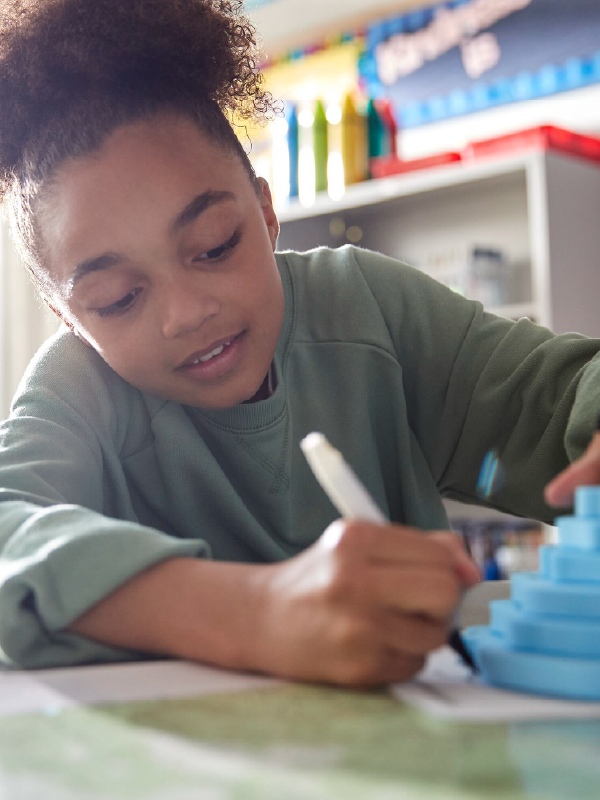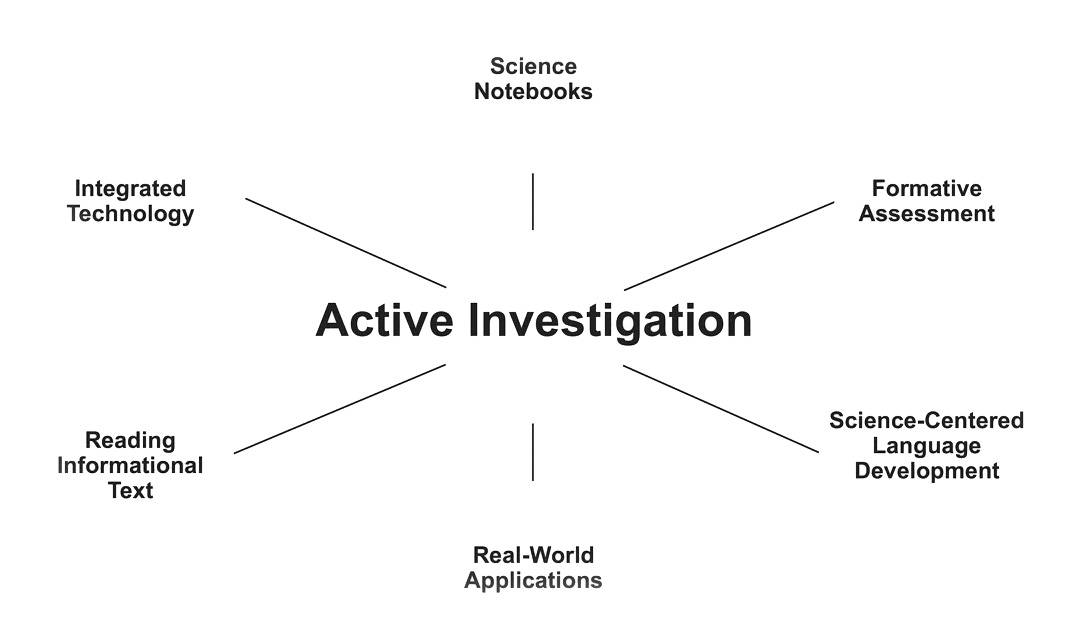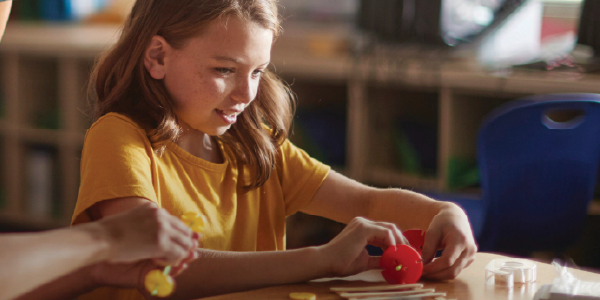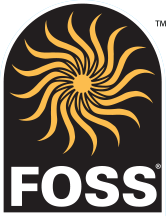What is FOSS?
The curriculum that puts students first.
The FOSS program was developed to engage students of all backgrounds and abilities. FOSS advances this student-first approach, providing opportunities to differentiate and support each student’s experience.
Promotes scientific thinking
FOSS Pathways empowers students to act as scientists and engineers using hands-on experiences to figure out the world around them. FOSS phenomena encourages students to engage with real-world issues using three-dimensional learning practices.

Accessible for all
The founding principle of the FOSS program was to enlist students not as passive recipients of information but as active investigators of phenomena. This approach engages and advances learners of all languages and cultures, taking advantage of prior experiences so all students can reason scientifically—a goal that has only gained relevance with time.
Provides a multimodal approach
FOSS Pathways combines hands-on science experiences with rich resources. This enables differentiated instruction that helps all students explore and understand scientific concepts in a way that resonates individually with each of them, promoting access and equity.

Offers multimedia experiences
FOSS Pathways provides digital resources, including custom-designed simulations and videos, for students and teachers through FOSSweb on ThinkLink™. These multimedia materials provide additional information to help students make sense of phenomena and ensure flexibility to keep active science teaching viable if classroom circumstances change.
Promotes student development of increasingly complex explanations.
The FOSS instructional design empowers students to figure out phenomena and engineering problems through multimodal pedagogies in a sequence similar to the 5E model. Most FOSS investigations begin with a hands-on activity where students ask questions, investigate, and collect data.
Proven and tested
The FOSS program has been refined through three decades of collaboration with developers, educators, and students around the world. It has empowered teachers, excited students, and elevated test scores for students with diverse backgrounds and experiences living in urban, suburban, and rural areas.

Active investigation is at the heart of FOSS.
FOSS makes them love science by letting them do science.
FOSS builds student understanding of core science concepts through active investigation. FOSS is built around firsthand investigation of phenomena, using classroom-tested pedagogies and practices to build students’ understanding of disciplinary core ideas in science.

Science Notebooks
Let students organize data and thinking to create a personalized record of learning.
Formative Assessments
Monitors student progress on an ongoing basis and drives future instruction.

Science-Centered Language Development
Blossoms as firsthand investigation inspires students to read, write, and discuss their experiences.
Real-World Applications
Take students outdoors and into the community, connecting problem solving to everyday life.
Reading Informational Text
Encourages students to integrate and extend their active-learning experiences by analyzing text, photos, and diagrams.
Integrated Technology
Features online activities that let students review and extend their classroom investigation.


FOSS promotes three-dimensional learning.
FOSS and NGSS: We set the standard before there was one.
Over a quarter century before the inception of A Framework for K–12 Science Education and NGSS, FOSS was applying research-based practices to engage students as scientists, challenging students to make sense of real-world phenomena as they learned how to solve problems. Today, FOSS embodies the three-dimensional learning the standards were made for — teaching not just rote knowledge, but scientific thinking.
Science and Engineering Practices
Scientists and engineers use these cognitive tools to answer questions and design solutions. Through these same practices, FOSS students gather evidence to explain real-world phenomena.
Crosscutting Concepts
These ideas tie together the varied concepts and disciplines of science. FOSS students apply them to different situations, making connections and building understanding.
Disciplinary Core Ideas
FOSS students develop these grade-level appropriate building blocks throughout their investigations to make sense of their observations and solve problems.

Designed to meet every standard. Including yours.
FOSS has evolved over time to meet the changing science education landscape and is aligned to the Next Generation Science Standards.
Today, NGSS and the Framework call for three-dimensional learning experiences that help students meet performance expectations. For more than three decades, the experts at UC Berkeley’s Lawrence Hall of Science has continuously refined FOSS to meet performance expectations. FOSS applies research-based practices to engage students as scientists, challenging students to make sense of real-world phenomena as they learned how to solve problems. Today, FOSS embodies the three-dimensional learning the standards were made for — teaching not just rote knowledge, but scientific thinking.


